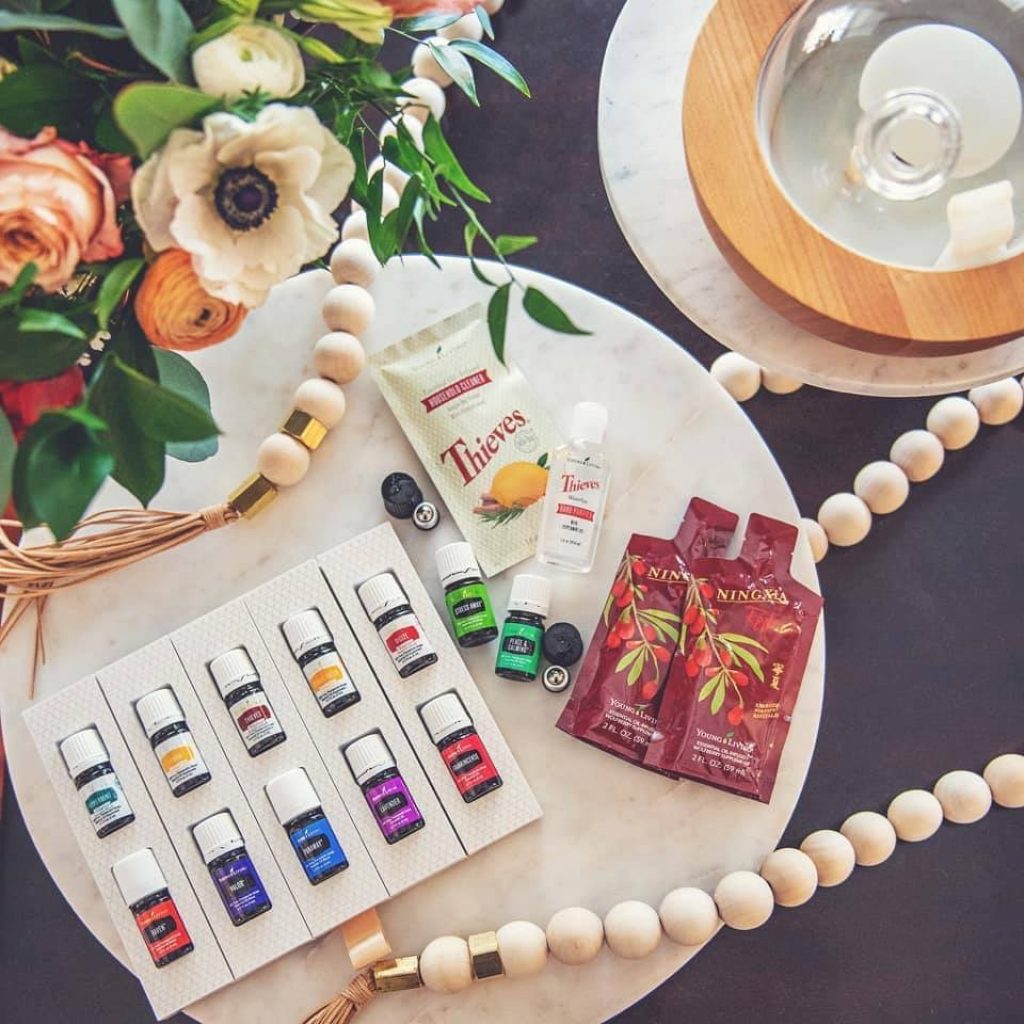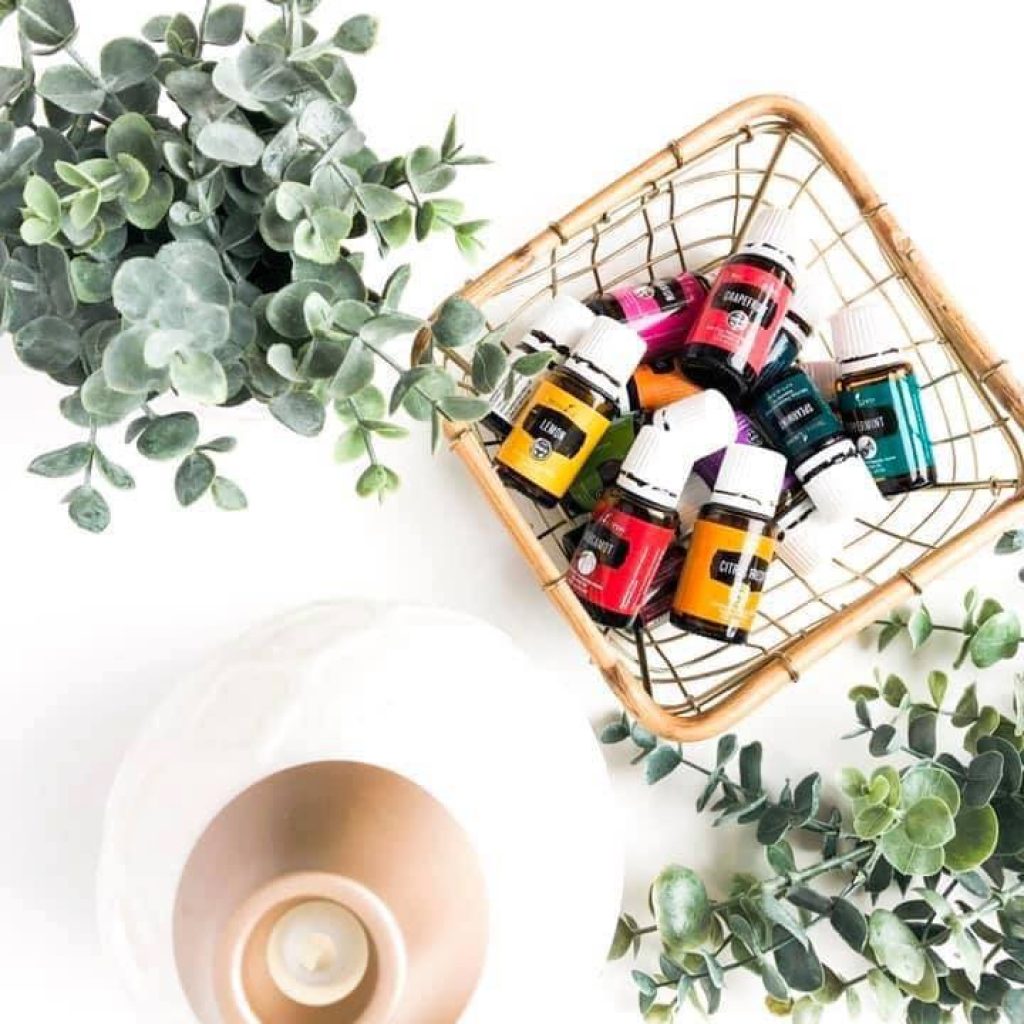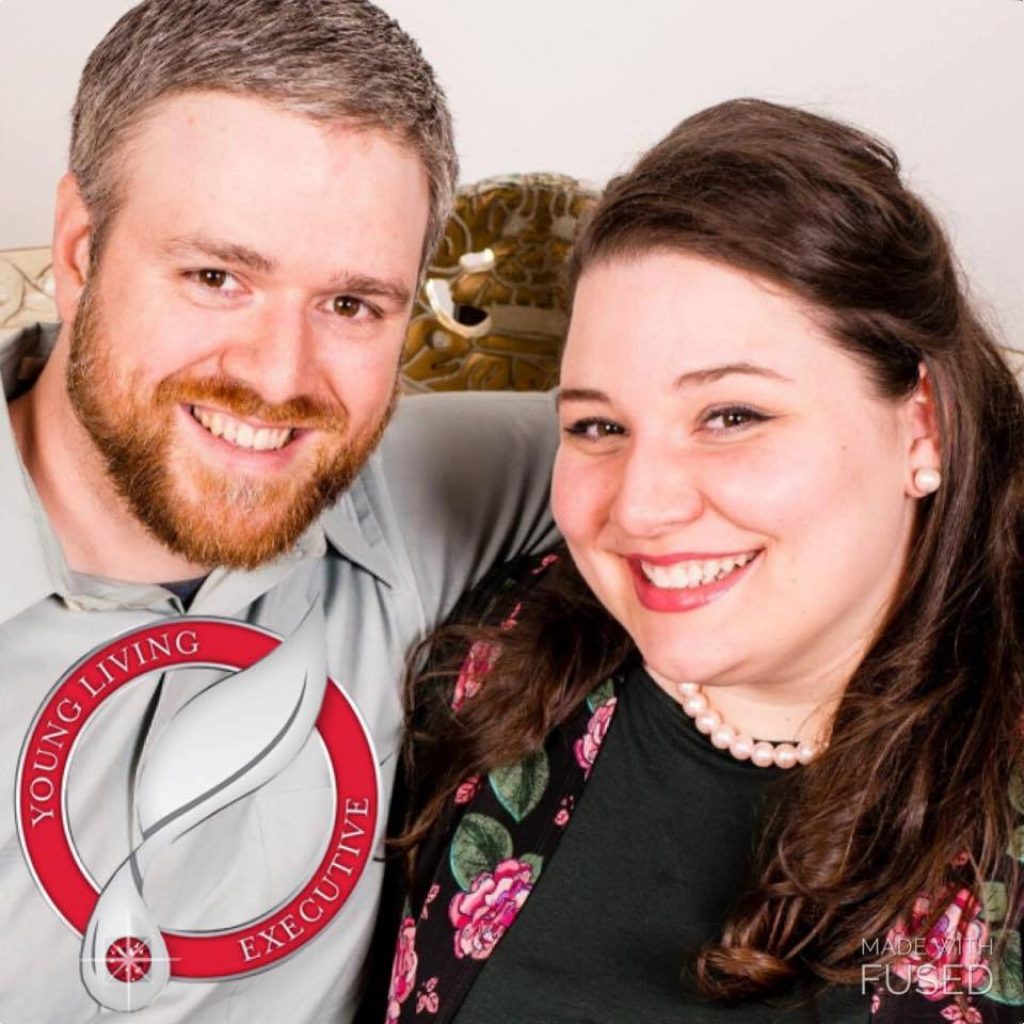
For as much as they’re such an easy target for jokes, the answer to the title question is yes. Sorry to give it all away so quickly.
My mom is every salesperson’s dream client. You give her a pitch while she’s drinking wine at your Arbonne/Tupperware/Pampered Chef (note-she doesn’t cook)/Tastefully Simple party and she’s writing you a $400+ check and is the biggest believer in the products ever. SO, when she went down an essential oils rabbit hole, needless to say, my dad and I made merciless fun of her.
Fast forward…
A few years later, her giant stockpile of essential oils partially made its way to my place and proceeded to sit in a drawer for months. When I got struck with perhaps the worst sickness of my life during flu season 2017, nothing was beyond my realm of trying. Enter Thieves. I got better. Was it correlation or causation? I don’t know, but honestly, I’ve been an oiler ever since and never looked back.
I diffuse lavender at night and citrus when I’m working. I actually just bought two of these diffusers, one for my office and one for my little “home office” (aka my dining room table).
AnyWHO, since I’m now such a fan, I wanted to learn a bit more about it and share it all with you. So, I asked a college friend of mine to share her wisdom.
Allow me to introduce Guine, Young Living guru and non-pushy and not-at-all-annoying consultant. Here we are on our semester abroad…

We’ve known each other for years, and she’s a wealth of information. This post is incredible and worth reading over carefully. I hope you enjoy!
I’ll turn it over to Guine….
Ten years ago, when I started dating the man who would become my husband – he started sharing with me about essential oils. He’d been introduced to them by his mom, a natural health practitioner who had discovered this world during her certification process. Having never heard of them before, I told him he should put on striped pants and sing about dragon’s liver, because he sounded to me like ‘Doc Terminus’, the villainous salesman in the original Pete’s Dragon movie. It wasn’t long before he won me over by giving me products to try, and I’ve been an enthusiastic oil user for a decade now.
But they’re not always as they claim…
When I first became an avid user, oils were not part of mainstream culture. People used to sniff me and ask, “What IS that?” Now sniffers ask “Are those essential oils?” Nowadays they have become hugely trendy, and it seems like every magazine is writing about them. They are for sale everywhere – there are “EOs” at the grocery store, even gas stations! It’s cool that they’ve emerged from the naturo-subculture.
As we learn more about the impact of products laden with toxins, a lot of people are turning to EOs. The word “fragrance” in a product ingredient list actually can mean 3,000 different ingredients, some which can be carcinogenic and hormone-disrupting. Synthetic fragrances are the new second-hand smoke in terms of detriment to health. We’re discovering that there’s formaldehyde in our fragrant candles. The exhaust from our dryers is more detrimental than most of our cars.

How to make the leap to EOs
If you’re going to venture into the world of essential oils, it’s probably because you’re looking for natural, non-toxic, and environmentally-friendly alternatives to consumer products. So, I cannot stress enough how important it is to know that not all oils are created equal. Here’s what you need to know to make smart purchases in this area:
- Essential oils are not the same as fatty oils like olive or coconut that you can cook with (and which can become rancid), though these are often used to dilute essential oils. EOs are aromatic, volatile liquids extracted from plants (colloquially people call it the ‘life force of the plant’). Depending on how well they are distilled, they can be very concentrated and much more potent that dried herbs (which only contains trace amounts of oil because of dehydration). They contain unique combinations of chemical compounds that support every system in the human body, and there is a ton of research out there about their effectiveness (but that is a whole ‘nother subject).
- The process of making quality essential oils requires pretty substantial amounts of plant material – for example, making 1 kilo of rose oil requires 5,000 pounds of petals. The potency of a particular oil will also depend on several factors: the condition of the soil the plant was grown in, farming techniques and especially harvesting practices, and even temperatures used for distillation.
- Though as a broad category the FDA considers essentials oils to be GRAS (generally regarded as safe), there is no universal rating system for the purity of an essential oil. Some companies have trademarked their own rating systems, but overall: the FDA allows a company to label their product “100% pure” when as little as 5% of the product in the bottle is actually essential oil. Some companies use chemical solvents and synthetic fillers to maximize their profit margins, all the while marketing their products as natural and pure, so it’s really important to know what you’re purchasing.

So how can you wade through the muck of marketing and information overload to make the smartest choices when purchasing essential oils?
Please do yourself a favor don’t fish a $3 bottle of Frankincense out of a bargain bin at the local superstore thinking you’ve done yourself a favor. Do some research and pick a brand you trust, because if natural and non-toxic are what you’re going for, you will be shooting yourself in the foot by buying the cheap stuff, especially if you don’t know where it came from and how it was grown and distilled.
Here are great questions to ask of a company before handing over your $:
Ask about their FARMS:
- Do they own their own farms and/or have a certification process in place for partner farms? Is it possible to visit their farms for a public tour?
- Does the company provide seeds to those farmers? What are their sustainability practices?
- What pesticides are used, and are the conditions of the soil tested?
- Do they test for peak harvest time?
Ask about DISTILLATION:
- Do they test each batch of oils for purity and potency? What tests do they perform?
- Does the company employ chemists competent to read test results accurately, and/or a qualified aromatologist? Do they have labs on-site?
- Do they perform third-party testing as well as in-house quality controls?
Ask about their PRODUCTS:
- How many single, non-blend essential oils do they carry?
- Bonus: If you want to use essential oils on your pets or take them internally, does the company have a specific product line tested for safe use?
You’ll discover after wading through these questions that only a handful of companies are making good stuff, (hint: they are not the companies that also sell toxic chemical cleaners or distribute their wares to the local gas station for sale). It is still remarkably doable to find affordable oils to purchase, because when you use high quality oils, they are so potent that a little goes a long way. If you make savvy choices, can save yourself a lot of $ while you ditch and switch the old nasty stuff for natural products. And bonus: you and your home can still smell delicious.

Guinevere Christian has been an enthusiast for essential oils for almost 10 years, when she was introduced to them by her now-husband Billy. They are proud distributors for Young Living. You can contact them at christianfamyl@gmail.com with more questions, or explore becoming a member at: https://bit.ly/2tMj124
